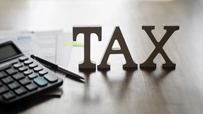A Complete Guide to Property Tax
July 11, 2025

Property tax, also known as house tax, is levied by municipal authorities in India on real estate properties. It is used for maintaining and improving the local civic amenities such as roads, parks, sewage systems, and lighting. Whether you own a residential or commercial property, it's important to know how to calculate and pay your property tax.
In this guide, we will break down nuances of property tax payment, including calculating property tax, different methods used by municipalities, and discuss the importance of timely payments for maximum tax savings.
How to Calculate Property Tax Payment
Property Tax = Base Value x Built-Up Area x Age Factor x Category of Use x Type of Building x Floor Factor
While this formula gives a general idea of how property tax is calculated, it's important to note that each municipality may have its own specific method.
Common Methods for Property Tax Payment in India
Capital Value System (CVS)
Under the Capital Value System (CVS), property tax is based on property valuation, and calculated as a percentage of the property's total market value. The market value is determined by the local administration, such as the municipal body or government, based on the locality.
Unit Area Value System (UAS)
The Unit Area Value System (UAS) calculates property tax based on the per-unit price of the built-up area. The price per unit is determined by factors such as location, land price, and usage. This value is then multiplied by the total built-up area of the property to calculate the property tax amount.
Annual Rental Value System or Ratable Value System (RVS)
The Annual Rental Value System or Ratable Value System (RVS) assesses property tax based on the annual rental value of the property. This does not necessarily mean the actual rent being collected, but rather a rental value determined by the municipality. The value is calculated based on factors like location, size, and the condition of the property.
How to Make Property Tax Payments
You can pay your property tax at your local municipal corporation office or designated banks affiliated with the corporation. Many municipal authorities also provide online payment options on their websites, making it convenient for property owners to pay their taxes.
To pay your property tax, you may need to provide your property tax number or Khatha Number for identification purposes. It's important to note that the responsibility of paying property tax lies with the owner of the property and not the occupant.
Late Payment and Interest Rates
It's crucial to pay your property tax on time to avoid any penalties or additional charges. Late payment can attract interest charges ranging from 5% to 20%, depending on state or municipality policies. These charges are added on top of the principal amount of the property tax. Ensure timely payments for maximum tax savings on your property.
Final Thoughts
Paying property tax timely is an essential responsibility for homeowners. By understanding how property tax is calculated and knowing the various methods used by municipalities, you can navigate this aspect of homeownership with ease.
Buying a house has never been this easy! Avail Ujjivan SFB’s wide range of affordable home loan products and enjoy a hassle-free loan journey. From house purchase loan to plot loans and home improvement loans, we have it all! Alternatively, you can browse through Ujjivan SFB product suite - our wide range of financial products are designed to make your financial life better.
Disclaimer:
The contents herein are only for informational purposes and generic in nature. The content does not amount to an offer, invitation or solicitation of any kind to buy or sell, and are not intended to create any legal rights or obligations. This information is subject to updation, completion, amendment and verification without notice. The contents herein are also subject to other product-specific terms and conditions, as well as any applicable third-party terms and conditions, for which Ujjivan Small Finance Bank assumes no responsibility or liability.
Nothing contained herein is intended to constitute financial, investment, legal, tax, or any other professional advice or opinion. Please obtain professional advice before making investment or any other decisions. Any investment decisions that may be made by the you shall be at your own sole discretion, independent analysis and evaluation of the risks involved. The use of any information set out in this document is entirely at the user’s own risk. Ujjivan Small Finance Bank Limited makes no representation or warranty, express or implied, as to the accuracy and completeness for any information herein. The Bank disclaims any and all liability for any loss or damage (direct, indirect, consequential, or otherwise) incurred by you due to use of or due to investment, product application decisions made by you on the basis of the contents herein. While the information is prepared in good faith from sources deemed reliable (including public sources), the Bank disclaims any liability with respect to accuracy of information or any error or omission or any loss or damage incurred by anyone in reliance on the contents herein, in any manner whatsoever.
To know more about Ujjivan Small Finance Bank Products Visit:"https://www.ujjivansfb.in"
All intellectual property rights, including copyrights, trademarks, and other proprietary rights, pertaining to the content and materials displayed herein, belong
to Ujjivan Small Finance Bank Limited or its licensors. Unauthorised use or misuse of any intellectual property, or other content displayed herein is strictly prohibited and the same is not intended for distribution to, or use by, any person in any jurisdiction where such distribution or use would (by reason of that person’s nationality, residence or otherwise) be contrary to law or registration or would subject Ujjivan Small Finance Bank Limited or its affiliates to any licensing or registration requirements.
FAQs
1. How often do I need to pay property tax?
Property tax needs to be paid annually. The due date for payment may vary based on your municipality's regulations.
2. Can I pay my property tax online?
Yes, many municipal authorities offer online payment options on their websites. This allows you to conveniently pay your property tax from the comfort of your home.
3. How can I calculate my property's market value for tax purposes?
Property valuation is determined by the local administration or government based on factors like location and prevailing rates in the area. You can consult a property valuator to get an estimate of the market value.
4. Can I appeal if I disagree with the assessed value of my property?
Yes, you can appeal against the assessed value of your property if you believe it has been incorrectly calculated. Contact your local municipal authority or tax department for the appeal process.
5. Can I claim deductions on my property tax?
Currently, there are no specific deductions available for property tax in India. However, you may be able to save on taxes through other means, such as claiming deductions on home loan interest under Section 24(b) of the Income Tax Act.
6. Can I prepay my property tax for multiple years?
Typically, property taxes are collected annually. However, some municipalities may allow prepayment for multiple years. Check with your local authority for more information.
7. What happens if I fail to pay my property tax on time?
Late payment of property tax can attract interest charges. The interest rate may vary depending on your municipality's policies. It's advisable to pay your property tax on time to avoid any additional charges.
8. How can I save on property taxes?
While property taxes are mandatory, there are ways to potentially save on taxes. For example, you can explore tax-saving investments like investing in a residential property under Section 80C of the Income Tax Act.
9. Can non-residential properties also be taxed?
Yes, non-residential properties such as commercial buildings and land are also subject to property tax. The calculation method may vary based on the type and use of the property.
Latest Blogs

How to Avoid Ineligible Deduction Claims While Filing ITR
July 09, 2025
Filing your Income Tax Return (ITR) for the financial year 2024-25 (Assessment Year 2025-26) requires careful attention to detail.

ITR-1 vs ITR-2: Understanding the Difference and Choosing the Right Tax Form
June 24, 2025
Filing your income tax return in India requires using the correct ITR form.

How Jewellers in India Calculate Gold Price
June 26, 2025
Gold jewellery holds a special place in Indian culture, often bought during festivals and family celebrations.

How to Link Your Mobile Number with Aadhaar Online & Offline Methods)
June 25, 2025
Linking your mobile number with Aadhaar is essential if you want to access Aadhaar-based services like e-KYC and Video KYC for bank accounts, OTP verification, filing taxes, e-Aadhaar downloads, and biometric authentication. Without a registered mobile number, you can't use any online Aadhaar services.

The Importance of Property Insurance When Taking a Home Loan
June 25, 2025
A home loan is a long-term financial commitment often spanning between 10 to 20 years, or even more.



